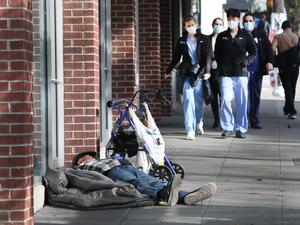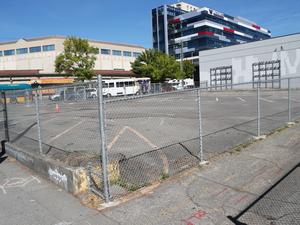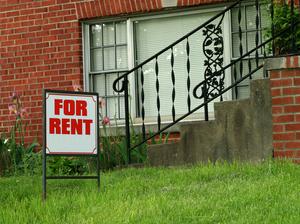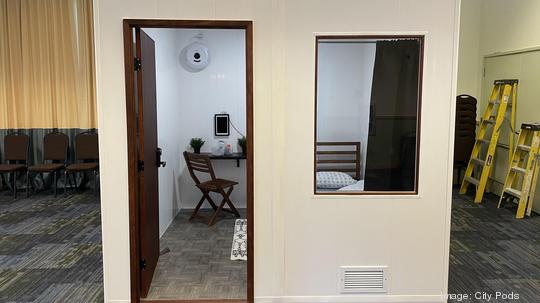
A Seattle hotel real estate professional on Thursday formally launched a modular housing company, City Pods, which he thinks could be scaled to address homelessness.
City Pods proposes placing modules in empty warehouses or other commercial buildings to turn them into what company CEO Keenan O'Leary calls wellness centers — places where unsheltered people would live and use technology to access services.
O'Leary said the centers could be built for less money than what King County is paying for hotels as part of its $350 million Health Through Housing initiative.
The county has been buying up motels to temporarily house people living on the streets. In one case, it paid $313,000 per room for a North Seattle property. O'Leary, an appraiser who works at Cushman & Wakefield's valuation and advisory practice, thinks that warehouses and other buildings with high ceilings could be acquired and retrofitted with hives of pods for $80,000 a unit.
The pods themselves cost $12,000. Additional money would be needed to acquire the real estate and build it out with communal hygiene centers and kitchens. Eventually, the modules could be deconstructed and the property resold.
Included in the pods are touchscreens so residents can gain virtual access to health care and other services. O'Leary said this will relieve pressure on overwhelmed social workers and outreach teams but acknowledged the centers would need onsite staffing.
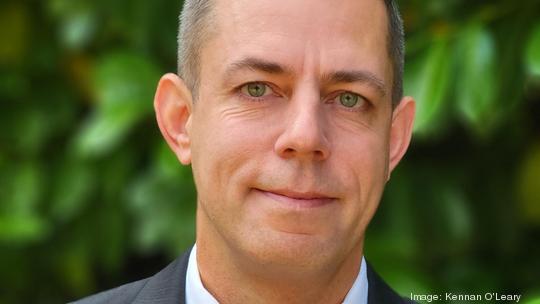
O'Leary showed a prototype at an event in Seattle, which Seattle mayoral candidate Bruce Harrell attended. Harrell, who has made addressing homelessness a cornerstone of his campaign, is running against City Council President M. Lorena González.
O'Leary sees City Pods as another bridge to permanent housing with support services, which have been proven to keep people in housing.
"Developing new permanent supportive housing is cost prohibitive. It's going to take decades to build," O'Leary said. Meanwhile, "we have a bunch of real estate in buffer zones like Sodo that I think are perfect for redevelopment using modular like City Pods while permanent supportive housing gets constructed."
NIMBY opposition is less likely in industrial areas like Sodo, O'Leary said.
However, neighborhood business owners have been frustrated for years by what Sodo Business Improvement Area Executive Director Erin Goodman has said is a skyrocketing rate of homelessness.
O'Leary, who grew up in Seattle, initially saw the City Pods model through a hospitality lens that would result in hostels. "Then came Covid," he said. Communal shelters are closed to tamp down the spread of the coronavirus make the scope of homelessness much more visible when people started camping in parks and on sidewalks.
He pivoted, in part, due to what he said is a family history of mental health issues, substance abuse and homelessness.
He said City Pods needs to gain traction by selling some units. O'Leary has shown representatives of Tacoma Community College (TCC) a pod. TCC has around 11,000 students and estimates at least 300 students are homeless or nearly so.
Bill Ryberg, vice president for college advancement and director of the college's foundation, said TCC looked into building traditional dormitories but found it cost prohibitive.
"We are far from making any decision, but what we are seeking is a temporary solution for students living in cars or tents," he said. Looking at the pod was "a first good step but we're a long way from deciding to go this route," he said.
He added the college would like to work with public partners like the city of Tacoma and Pierce County as well as nonprofits on temporary housing solutions to also serve non-student populations.
